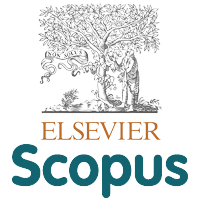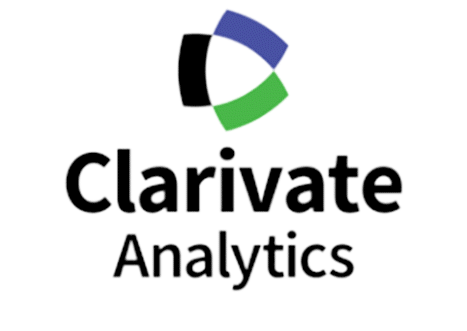Land Suitability Analysis for Agricultural Land Use using Hyperscale DEM Data
Abstract
Keywords
Full Text:
PDFReferences
Aarthi, R., & Sivakumar, D. (2020). An enhanced agricultural data mining technique for dynamic soil texture prediction. Procedia Computer Science, 171, 2770–2778. DOI
Adi, S. H., Grunwald, S., Tafakresnanto, C., & Sosiawan, H. (2021). Modeling paddy field soil conditions in East Java, Indonesia. Soil Security, 5, 100025. DOI
Akpoti, K., Kabo-bah, A. T., & Zwart, S. J. (2019). Agricultural land suitability analysis: State-of-the-art and outlooks for integration of climate change analysis. Agricultural Systems, 173, 172–208. DOI
AL-Taani, A., Al-husban, Y., & Farhan, I. (2020). Land suitability evaluation for agricultural use using GIS and remote sensing techniques: The case study of Ma’an Governorate, Jordan. The Egyptian Journal of Remote Sensing and Space Science, 24(1), 109-117. DOI
Amsili, J. P., van Es, H. M., & Schindelbeck, R. R. (2021). Cropping system and soil texture shape soil health outcomes and scoring functions. Soil Security, 4, 100012. DOI
Barman, U., & Choudhury, R. D. (2020). Soil texture classification using multi class support vector machine. Information Processing in Agriculture, 7(2), 318–332. DOI
Behrens, T., Schmidt, K., Ramirez-Lopez, L., Gallant, J., Zhu, A. X., & Scholten, T. (2014). Hyper-scale digital soil mapping and soil formation analysis. Geoderma, 213, 578–588. DOI
Bring, J. (1994). How to standardize regression coefficients. American Statistician, 48(3), 209–213. DOI
da Silva Chagas, C., de Carvalho Junior, W., Bhering, S. B., & Calderano Filho, B. (2016). Spatial prediction of soil surface texture in a semiarid region using random forest and multiple linear regressions. CATENA, 139, 232–240. DOI
Erb, I. (2020). Partial correlations in compositional data analysis. Applied Computing and Geosciences, 6, 100026. DOI
Fang, H. (2021). Effect of soil conservation measures and slope on runoff, soil, TN, and TP losses from cultivated lands in Northern China. Ecological Indicators, 126, 107677. DOI
FAO. (2007). Land evaluation: Towards a revised framework. In Land and Water Discussion Paper No. 6. Rome, IT: Food and Agriculture Organization of the United Nations. Retrieved from PDF
Florinsky, I. V. (2008). Global lineaments: Application of digital terrain modelling. In Z. Qiming, L. Brian, & T. Guo-an (Eds.), Advances in Digital Terrain Analysis. Lecture Notes in Geoinformation and Cartography (pp. 365–382). Springer. DOI
Florinsky, I. V. (2012). Digital terrain analysis in soil science and geology. Academic Press. DOI
Florinsky, I. V., Eilers, R. G., Manning, G. R., & Fuller, L. G. (2002). Prediction of soil properties by digital terrain modelling. Environmental Modelling & Software, 17(3), 295–311. DOI
Goto, H. (2021). Three-dimensionally consistent contour-based network rendered from digital terrain model data. Geomorphology, 395, 107969. DOI
Grunwald, S. (2009). Multi-criteria characterization of recent digital soil mapping and modeling approaches. Geoderma, 152(3–4), 195–207. DOI
Lilja, H., & Nevalainen, R. (2006). Developing a digital soil map for Finland. In P. Lagacherie, A. B. McBratney, & M. Voltz (Eds.), Developments in Soil Science Vol. 31, Digital Soil Mapping: An Introductory Perspective (pp. 67–74). Elsevier. DOI
Ma, Y., Minasny, B., Malone, B. P., & Mcbratney, A. B. (2019). Pedology and digital soil mapping (DSM). European Journal of Soil Science, 70(2), 216–235. DOI
MacMillan, R. A., Pettapiece, W. W., Nolan, S. C., & Goddard, T. W. (2000). A generic procedure for automatically segmenting landforms into landform elements using DEMs, heuristic rules and fuzzy logic. Fuzzy Sets and Systems, 113(1), 81–109. DOI
Malone, B., Stockmann, U., Glover, M., McLachlan, G., Engelhardt, S., & Tuomi, S. (2022). Digital soil survey and mapping underpinning inherent and dynamic soil attribute condition assessments. Soil Security, 6, 100048. DOI
Mazahreh, S., Bsoul, M., & Hamoor, D. A. (2019). GIS approach for assessment of land suitability for different land use alternatives in semi arid environment in Jordan: Case study (Al Gadeer Alabyad-Mafraq). Information Processing in Agriculture, 6(1), 91–108. DOI
McBratney, A. B., Mendonça Santos, M. L., & Minasny, B. (2003). On digital soil mapping. Geoderma, 117(1–2), 3–52. DOI
Ostovari, Y., Honarbakhsh, A., Sangoony, H., Zolfaghari, F., Maleki, K., & Ingram, B. (2019). GIS and multi-criteria decision-making analysis assessment of land suitability for rapeseed farming in calcareous soils of semi-arid regions. Ecological Indicators, 103, 479–487. DOI
Pilevar, A. R., Matinfar, H. R., Sohrabi, A., & Sarmadian, F. (2020). Integrated fuzzy, AHP and GIS techniques for land suitability assessment in semi-arid regions for wheat and maize farming. Ecological Indicators, 110, 105887. DOI
Ritung, S., Nugroho, K., Mulyani, A., & Suryani, E. (2011). Petunjuk teknis evaluasi lahan untuk komoditas pertanian (Edisi Revisi). Bogor: Balai Besar Penelitian dan Pengembangan Sumberdaya Lahan Pertanian. Retrieved from website
Searle, R., McBratney, A., Grundy, M., Kidd, D., Malone, B., Arrouays, D., … Andrews, K. (2021). Digital soil mapping and assessment for Australia and beyond: A propitious future. Geoderma Regional, 24, e00359. DOI
Shary, P. A. (1995). Land surface in gravity points classification by a complete system of curvatures. Mathematical Geology, 27(3), 373–390. DOI
Sinshaw, B. G., Belete, A. M., Mekonen, B. M., Wubetu, T. G., Anley, T. L., Alamneh, W. D., … Mossie Birhanu, M. (2021). Watershed-based soil erosion and sediment yield modeling in the Rib watershed of the Upper Blue Nile Basin, Ethiopia. Energy Nexus, 3, 100023. DOI
Tashayo, B., Honarbakhsh, A., Akbari, M., & Eftekhari, M. (2020). Land suitability assessment for maize farming using a GIS-AHP method for a semi- arid region, Iran. Journal of the Saudi Society of Agricultural Sciences, 19(5), 332–338. DOI
Tercan, E., & Dereli, M. A. (2020). Development of a land suitability model for citrus cultivation using GIS and multi-criteria assessment techniques in Antalya province of Turkey. Ecological Indicators, 117, 106549. DOI
Yalew, S. G., van Griensven, A., Mul, M. L., & van der Zaag, P. (2016). Land suitability analysis for agriculture in the Abbay basin using remote sensing, GIS and AHP techniques. Modeling Earth Systems and Environment, 2(2), 101. DOI
Zhang, X., Song, J., Wang, Y., Deng, W., & Liu, Y. (2021). Effects of land use on slope runoff and soil loss in the Loess Plateau of China: A meta-analysis. Science of The Total Environment, 755, 142418. DOI
DOI: http://doi.org/10.17503/agrivita.v44i2.2985
Copyright (c) 2022 The Author(s)

This work is licensed under a Creative Commons Attribution-NonCommercial 4.0 International License.








